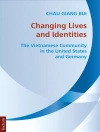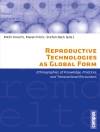Cultural issues are somtimes powerful and sensitive that they command unreflected loyalty from members of the group. The use of physical punishment in Igboland appears to be one of such cultural sensitivities. The author provides the framework for understanding the way Igbo people think about certain held beliefs especially in the context of childrearing practices, given that most people act out of convictions even when they are not able to rationally explain their actions. Thus, the personal history, personality style, the ability to nurture and assist the child’s developmental progress, the beliefs, convictions and the psychology of parents and caregivers have bearing more or less on the phenomenon of physical child abuse. The book underscores that the dominant social philosophy, the egalitarian or non-egalitarian nature, the competitiveness, the social policies, the world view and the social construction or definition of childhood and child abuse existent in a society – all must be taken into consideration. It seeks to serve as a response to the lack of comprehensive ethnographic and anthropological reflection on the connection between the structure of Igbo family and the phenomenon of physical child abuse. The author unpacks several cultural taboos placing them in anthropological perspectives for a better understanding of Igbo entrenched cultural practices.
Agu Chibuzo Leonard
Nwaja [PDF ebook]
The effects of family structure on the phenomenon of physical child abuse in Igboland, Nigeria
Nwaja [PDF ebook]
The effects of family structure on the phenomenon of physical child abuse in Igboland, Nigeria
قم بشراء هذا الكتاب الإلكتروني واحصل على كتاب آخر مجانًا!
لغة الإنجليزية ● شكل PDF ● ISBN 9783828864030 ● حجم الملف 11.3 MB ● الناشر Tectum ● مدينة Baden-Baden ● بلد DE ● نشرت 2016 ● الإصدار 1 ● للتحميل 24 الشهور ● دقة EUR ● هوية شخصية 4856438 ● حماية النسخ Adobe DRM
يتطلب قارئ الكتاب الاليكتروني قادرة DRM












